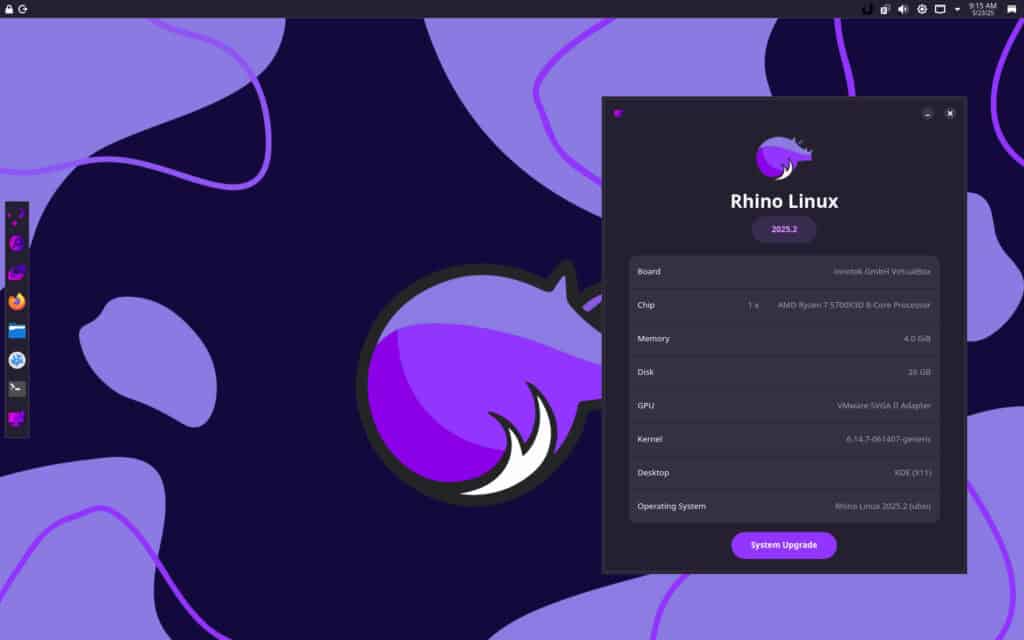Rhino Linux, a rolling-release distro that builds on Ubuntu’s development branch, has unveiled two important novelties: the first-ever release of the UBXI KDE 6 Desktop port and the introduction of RPK2, a Nushell-based rewrite of its core package manager, now available for community testing.
As many users know, the in-house-developed Unicorn desktop—one of the distribution’s standout features—has, until now, been focused entirely on building and customizing the XFCE desktop environment.
But now, the UBXI KDE 6 Desktop marks the first official expansion of the Unicorn Beyond XFCE Initiative (UBXI), a project launched in 2023 to extend the signature Unicorn workflow, theming, and design elements beyond the XFCE desktop environment.
In light of this, the new UBXI port brings the full Unicorn experience to KDE Plasma 6. Users can now enjoy the familiar workflow and violet color scheme synonymous with Unicorn, which is now integrated seamlessly into KDE’s modern desktop environment.

For Rhino Linux users eager to try out this new desktop experience, switching is as simple as running the command:
rpk install ubxi-kde-desktop-gitCode language: Bash (bash)It’s also worth noting that the team plans to release additional Rhino disk images with the UBXI KDE Desktop pre-installed by the end of 2025. Now, to the next big novelty—the RPK package manager.
The devs have opened testing for RPK2, a complete rewrite of Rhino PKG (RPK) built on Nushell. The team is introducing RPK2 as a secondary package within the rhino-stampede-dev testing suite to ensure stability and gather valuable community feedback before fully integrating it into the main system.
Users interested in exploring the latest developments can install the full testing suite, which includes the Unicons icon pack alongside RPK2, by executing:
rpk install rhino-stampede-devCode language: Bash (bash)Alternatively, RPK2 alone can be installed with:
rpk install rhinu-pkg-gitCode language: Bash (bash)Until its full release, RPK2 can be run under the commands rhinu-pkg or rpk2, retaining compatibility with existing syntax to minimize disruption.
For more information, see the announcement.

I do not trust this distro with all the issues they have had in past. It hardly had support in past.
Hey Jerry, I apologise if you’ve had any issues but I guarantee that the distribution receives support. You can join our community discord server for direct access to our help channels with support from myself and other members of the development team.
Many thanks,
AJ, Desktop Lead
no longer a pause in development and everything has been worked out? https://linuxiac.com/rhino-linux-development-temporarily-paused/ Glad things have moved forward and made progress.
Yes, no more pause (and hasn’t been since June 2024): https://blog.rhinolinux.org/news-14
Since then we have:
– Reviewed our strategy
– Made several successful releases
– Gave a talk at FOSDEM which actually touched on why small open source projects and how they are managed can lead to contributor burnout.
What is important to remember is the fact that we are volunteers, and are not paid for the work that we are doing. Also when we took a break we still maintained and shipped bug fixes and helped our users, however we just were not focusing on the next release for a little while whilst we regrouped.
Rhino Linux is moving in the right track 🙂